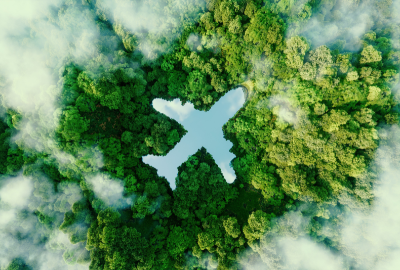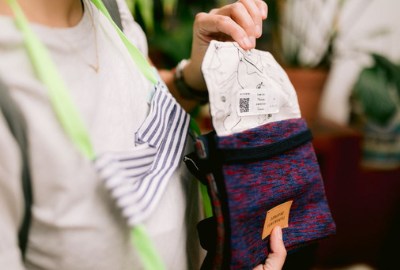News
Sustainable Flight Challenge: new heights for Delta
Source: Delta Air Lines
2 minutes
To showcase its sustainable solutions, Delta participated in the SkyTeam Alliance’s Sustainable Flight Challenge. On a flight from Atlanta to Salt Lake City, Delta put to work technologies available to customers today, as well as some innovations that are still in development.
 Image by Delta Air Lines
Image by Delta Air Lines
SkyTeam Alliance’s Sustainable Flight Challenge is an initiative where partner airlines share learnings and innovations with the common goal of reducing the industry’s carbon footprint.
Participating in the challenge offered Delta Air Lines the opportunity to show that its pivotal steps to lower its carbon footprint of today have every potential of paying off tomorrow.
How did the airline fare in its attempt on the Atlanta-Salt Lake City flight?
- Delta’s most fuel-efficient aircraft in-service today, the 737-900ER, took off powered by a fuel blend that included 400 gallons of sustainable aviation fuel, supplied by partner Gevo. This was the largest amount of SAF ever used on a flight out of Atlanta. SAF reduces the lifecycle emissions of greenhouse gases up to 80% compared to fossil jet fuels.
- The aircraft that Delta used for the challenge had some specific features, such as new landing gear tires that reduce plane weight by 100 pounds and winglets that reduce drag, increase fuel efficiency and reduce emissions.
- Both in Atlanta and Salt Lake City, ground handling was supported by 100% electric ground service equipment (eGSE), with battery-powered tractors and carts that loaded baggage and fuel.
- During the flight, passengers were supplied with soft pillows and blankets made from recycled plastic bottles. Passengers also received Delta’s new premium and eco-conscious amenity kit that eliminates five single-use plastic items per kit.
- Customers seated in First Class also selected from an array of more sustainable menu offerings, such as meat sourced from ranches that practice regenerative land management and locally grown vegetables. First Class customers also chose their meals before boarding, allowing Delta to ensure no food was wasted. All customers were offered gourmet snacks served in recyclable packaging.
- For Delta’s flights, customer service was reinvented with no disposable plastic. After the flight, all beverage packaging was recycled, and all food scraps and service were composted in Salt Lake City. Thanks to all these measures, this Sustainable Flight Challenge participation, as Delta announced, “was a zero-waste flight, with the exception of safety, health and hygiene items that may be single-use.”


